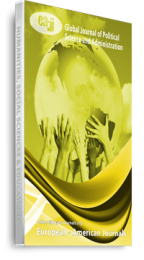The study examined the effect of Public Policy on Economic Empowerment – A study of Tradermoni Scheme of Buhari Administration. The survey design was used in this study to generate data. The population of the study consists of all the 87 million people in extreme poverty in Nigeria. The sample selection of the people recognized by our population definition was done randomly. The key instrument used to elicit data in this study was questionnaire. Descriptive and inferential statistics were used to analyse data in this study. The study found that the major activities of Trader Moni towards Poverty alleviation in Nigeria include: N10,000 loan, N15,000 loan, N20,000 loan, N50,000 loan, N100,000 loan, N150,000 loan and N300,000 loan. The study found that Trader Moni generates empowerment for petty traders in Nigeria. The study found that the major factors affecting the implementation of Trader Moni towards poverty alleviation in Nigeria include: Insufficient information, non-payment of stipend to participants as at when due, bribery and corruption, wrong bank verification number (BVN), overbearing hands of politicians in the programme, high transportation fare paid by the participants to work, website and internet hiccups, poor funding of the programme. Conclusively, eeconomic empowerment and poverty alleviation programmes in Nigeria have since the 20th and 21st centuries been in the increase. Tradermoni aspires to provide a platform where most Nigerian petty traders can access soft loans of interest free orientation. Tradermoni addresses the challenge of petty traders’ lack of capital by providing a structure for interest free loan advancement with repayment plan of six months for a higher loan collection, while linking its core and outcomes to fixing inadequate public services and stimulating the larger economy. From the test of the hypotheses it was conclusive that trader moni impacts on poverty alleviation in Nigeria and trader moni engenders economic empowerment of petty traders in Nigeria.The study therefore recommends that government should encourage the strengthening of the capability for unemployed rural and urban dwellers. Since unemployed people constitute an increasing portion of the rural dwellers, economic policies should aim at enhancing their economic empowerment and poverty alleviation in Nigeria performance. Equitable access to financial resources and services should be provided. They will need credit and extension services and assistance in adopting improved economic empowerment and poverty alleviation in Nigeria practices and technologies that are suited to their capabilities.
Keywords: Economic Empowerment, Public Policy, Trader Moni, Youth

